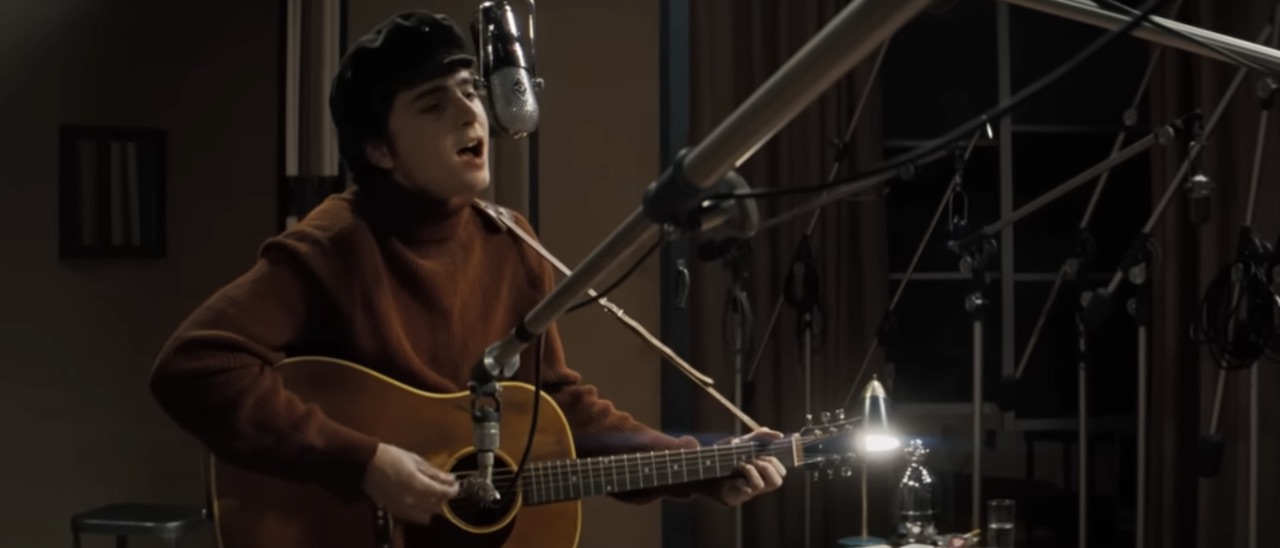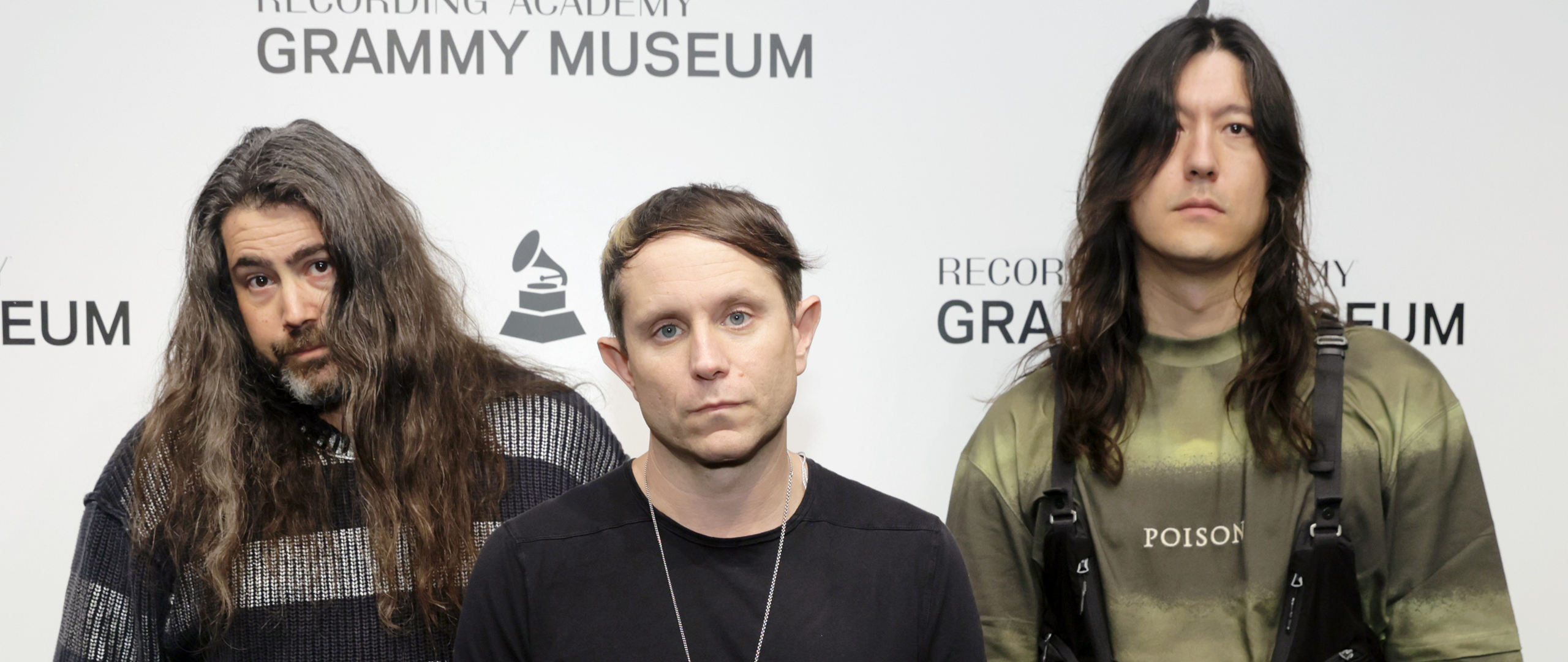You can trust Louder
In a scene that will doubtless strike a chord with women the world over, on the morning following their first night together, after receiving his unsolicited opinion that she "tries too hard" with her songwriting, and that her songs "are like an oil painting at the dentist's office", Joan Baez (Monica Barbaro) tells Bob Dylan (Timothée Chalamet), "You're kind of an asshole Bob." Though no other character in James Mangold's eagerly-anticipated biopic of one of music's most enigmatic legends voices the same line, you can take it as read that, at some point in their dealings with the Minnesota-born musician, they've definitely had the same thought.
Adapted from American music journalist and folk/blues guitarist Elijah Wald's 2015 book Dylan Goes Electric!: Newport, Seeger, Dylan, and the Night That Split The Sixties, a forensic look at Dylan's legendary and controversial performance at the Newport Folk Festival on July 25, 1965, A Complete Unknown opens with a wide-eyed, baby-faced Dylan tumbling out of a hitched ride onto New York's streets in January 1961 on a mission to locate Woody Guthrie, whose songs he says "struck me down to the ground". Directed to Greystone Park Psychiatric Hospital in New Jersey, Dylan finds folk hero Pete Seeger (Edward Norton) at the stricken Guthrie's bedside, and is asked to play something for the two men on the acoustic guitar he's carrying. The confident young musician proceeds to play Song To Woody ("Hey, hey Woody Guthrie, I wrote you a song 'bout a funny ol' world that's a-comin' along"), gaining instant approval from the folk scene elders: Seeger then invites Dylan to stay his home, and subsequently introduces him to, and champions him among, the Greenwich Village cognoscenti, who are similarly charmed and awed by his obvious talents.
In reality, none of this happened. And if this is the sort of 'heightened reality' storytelling that would irk you as a dedicated and learned student of Dylan's life and art, then perhaps A Complete Unknown may not be for you. But given that Dylan's long-time manager Jeff Rosen optioned Elijah Wald's book for film rights, and worked closely with screenwriter Jay Cocks on the adaptation, and that Dylan himself made notes on the script and insisted on the inclusion of a totally inaccurate scene, one can assume that the man himself is okay with a little myth-making. After all, he wasn't above mischievously tweaking an autobiographical fact or three in his early years, and wasn't overly concerned whether others believed him or not. At one point in the film, Dylan informs Baez that he learned guitar from a cowboy called Wigglefoot while working at a carnival, earning the response "You're so completely full of shit" from his already increasingly weary and wary new love.
It's to Timothée Chalamet's immense credit that he can make his character self-centred, capricious, stubborn, precious and downright rude on occasion, and still have you rooting for him. In this regard, he's helped no end by superb supporting performances from Barbaro and Norton - all three actors singing and playing every note their characters perform - and from Elle Fanning, who plays Sylvie Russo, a version of Dylan's real-life girlfriend Suze Rotolo, her character name changed at Dylan's request, out of respect for his friend's privacy. In the film, Russo might not be aware that Dylan and Diaz have slept together in her bed while she's out of the country for 10 weeks, but in a pivotal scene, watching her fast-rising lover sing The Times They Are A-Changing at 1964's Newport Folk Festival and noticing Baez looking on adoringly from side stage, her eyes slowly fill with tears. It's a subtly heartbreaking moment.
The always-restless Dylan too, of course, is changing, as is the world at large, socially and culturally. This results in tension, friction, frustration and generational clashes, with the gentle, generous Seeger not exempt from Dylan's anger, despite his kindness to the younger man. This all builds to a peak, as promised, at Newport 1965, and arguably the most famous four-song set in rock 'n' roll history. Often cast as a progressive vs luddite stand-off, the story is given greater nuance here, even as the facts of the day are massaged once more. At a point, Norton's Seeger pleads with his friend to take stock of the fact that his performance on the day could be a make or break moment for the community which has nurtured him, but gets short thrift from Chalamet's Dylan. It's a sweet irony then that A Complete Unknown is already causing a new generation of music fans to discover the work of Dylan, Baez, Seeger and Guthrie for themselves. The times, once more, are a-changing.
The latest news, features and interviews direct to your inbox, from the global home of alternative music.

A music writer since 1993, formerly Editor of Kerrang! and Planet Rock magazine (RIP), Paul Brannigan is a Contributing Editor to Louder. Having previously written books on Lemmy, Dave Grohl (the Sunday Times best-seller This Is A Call) and Metallica (Birth School Metallica Death, co-authored with Ian Winwood), his Eddie Van Halen biography (Eruption in the UK, Unchained in the US) emerged in 2021. He has written for Rolling Stone, Mojo and Q, hung out with Fugazi at Dischord House, flown on Ozzy Osbourne's private jet, played Angus Young's Gibson SG, and interviewed everyone from Aerosmith and Beastie Boys to Young Gods and ZZ Top. Born in the North of Ireland, Brannigan lives in North London and supports The Arsenal.


